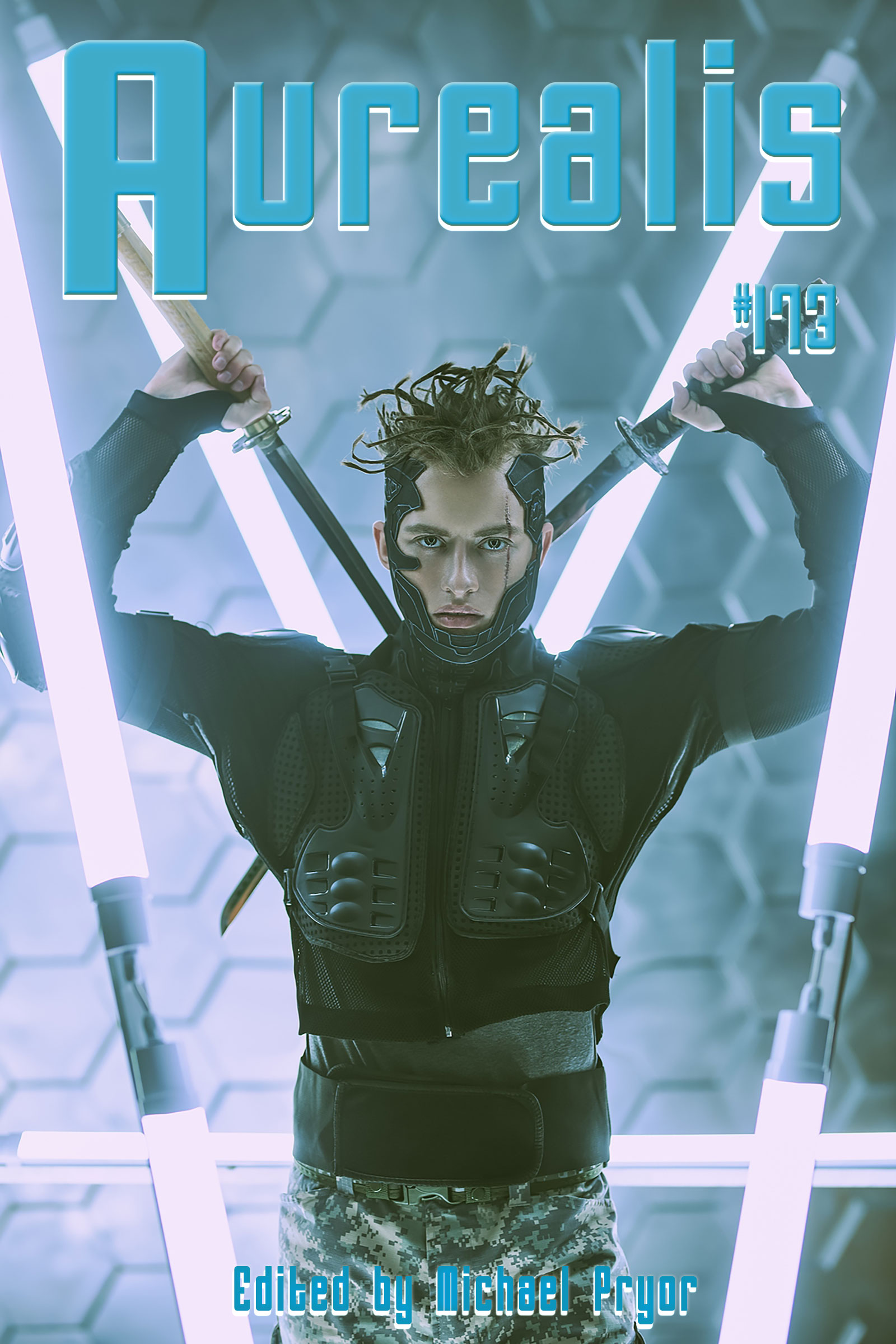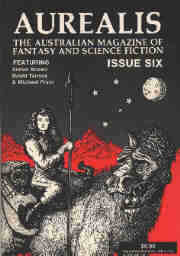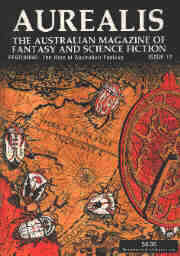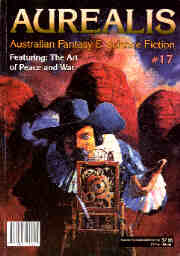Aurealis #173
$3.99
Aurealis #173 is proud to feature stories by Andrew Nathan Roberts, Henry Neilson and Erin Munzenberger, accompanied by amazing internal art from Peter Allert, Simon Walpole and Chris Catlin. Our fascinating non-fiction is by Gillian Polack, Ani White and Andrew Kolarik. Don’t forget our superb Reviews sections—important reading!
- From the Cloud — Michael Pryor
- Refuse — Andrew Nathan Roberts
- Life in the Dirt — Henry Neilsen
- Angie’s Triumph — Erin Munzenberger
- Mary Ann Moore-Bentley: The Politics of Early Australian Science Fiction — Gillian Polack
- The Philosophical Absurdism of the Final Destination Series — Ani White
- Watchers in the Dark: the Weird Magic of Paperhouse — Andrew Kolarik
Five Great Historical Fantasy Novels
We’ll take a stab a definition of Historical Fantasy, even though we understand that definitions often cause more problems than they solve:
Historical Fantasy is a story set in an actual, definable historical time and location, but with elements of the fantastic included such as magic, gods or imaginary creatures.
Yes, it’s arguable, and on the margins there are exceptions and ‘should be includeds’, but that’s the fate of every definition.
Historical Fantasy can be a real joy if you love Fantasy, but have grown tired of the standard Fantasy setting—a quasi-mediaeval, Northern European milieu. Historical Fantasy uses the best aspects of Fantasy in fresh, new places, so here’s our list of Five Great Historical Fantasy Novels:
Bridge of Birds—Barry Hughart (1984)
Oh, do read this book. Barry Hughart called it ‘A Novel of an Ancient China That Never Was’ and it’s an utter delight. Master Li (‘I have a slight flaw in my character’), and Number Ten Ox, his assistant, have a series of remarkable adventures in a magical landscape full of extraordinary characters. It’s rollicking, hilarious, suspenseful, eye-opening and the ending is both profound and moving.
The Stress of Her Regard—Tim Powers (1989)
Tim Powers is one of the masters of Historical Fantasy. In The Stress of Her Regard, he takes us to early 19th century Europe and the world of the Romantic Poets. Shelley, Keats and Byron are substantial characters, and the remarkable night at the Villa Diodati, where Mary Shelley created Frankenstein in the presence of Lord Byron, Percy Shelley and Dr John Polidori. This is the central part of a vast and brooding story that weaves in and out of the gaps in history. Sensational!
The Temeraire series—Naomi Novik (2006–2016)
Now we’re in the middle of the Napoleonic Wars, but with dragons! Do we need to say more?
Soldier of the Mist—Gene Wolfe (1986)
One of our great speculative fiction writers, Gene Wolfe wrote one of the great Historical Fantasy books in Soldier of the Mist, which is set in the Greek-Persian wars of the 5th century BCE. The main character suffers from head injury-induced amnesia—but he can also see gods, spirits and supernatural creatures. It’s a majestic book.
The Terror—Dan Simmons (2007)
Some might put this in the horror basket, but we’re going to appropriate it for Historical Fantasy, mostly because of the amount of research that’s gone into this cracker of a novel. It traces the ill-fated Franklin Expedition of 1845, in which two ships went searching for the fabled Northwest Passage through the icy seas to the north of Canada. It’s no spoiler to tell you that everyone dies, for that’s the historical record. Simmons, however, uses chilling (!) Inuit mythology to explore a possible reason. It’s breathtaking, and the TV series is nearly as good.
From Refuse by Andrew Nathan Roberts:
It doesn’t take long for me to realise I’ve been dreaming again.
From Life in the Dirt by Henry Neilsen:
Have you ever felt dirt when it’s had every living thing squeezed out of it, down to the cellular level? Every vibrant moment of potential dried and drawn out, leaving only a husk and an idea of what could have been?
From Angie’s Triumph by Erin Munzenberger:
I wiped my hand across the grimy window, failing to lessen the dirt. The air outside was crisp and white—so hot you could hear it sizzle. Far away, the horizon danced above red earth. I strained my ears, hearing nothing but the buzz and thud of a blowfly against the glass. The bunker smelled of old cooking grease and never-ending heat.
From Mary Ann Moore-Bentley: The Politics of Early Australian Science Fiction by Gillian Polack:
Nineteenth century Australia contained small worlds where interesting things happened. The town of Braidwood, for instance, in the part of New South Wales most frequented by bushrangers is strongly connected to 19th century women who wrote science fiction. One of those women was Mary Ann Moore-Bentley.
From The Philosophical Absurdism of the Final Destination Series by Ani White:
The Final Destination series (2000–) is the most philosophically sophisticated slasher franchise in its view of death. The inexorable universal march of Death avoids a central problem with the genre: the moralistically punitive nature of targeted violence. Instead, the series suggests a philosophical absurdist view of death, showing that it has no inherent meaning or morality.
From Watchers in the Dark: the Weird Magic of Paperhouse by Andrew Kolarik:
Paperhouse (1988) has a cast-iron grip on the idea that when you are young, you don’t quite yet know what the rules are.





